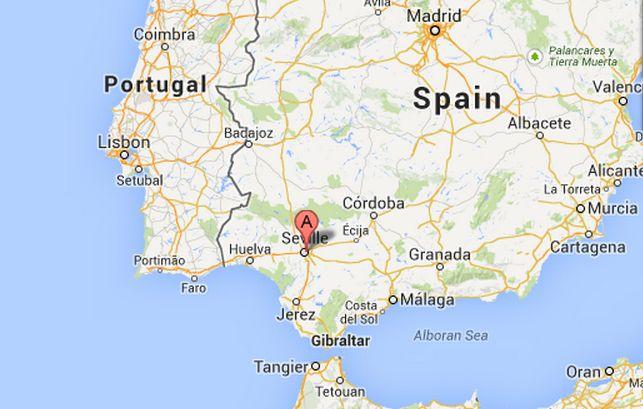A Spanish workers union conducted what it calls a Robin Hood style robbery on Friday, stealing carts full of school supplies from a supermarket in the southern city of Seville to give to disadvantaged students. Ethicists have long debated whether the end justifies the means, and some have wondered whether the Robin Hood-inspired idea of stealing from the rich to give to the poor really leads to a happy ending.
Diego Canamero, a spokesman for the Union of Andalusian Workers, said in a video recording of the mass robbery, according to a translation: “There is not money, there are no jobs; people are losing their homes. ... With this gesture today, we have taken about eight to 10 trolleys of school supplies which we will distribute in some schools.”
The targeted Carrefour supermarket has not yet decided to press charges. Local media reported that no arrests were made. A similar raid occurred in the area last year in which food was stolen, then given to local non-governmental organizations.
In a 1998 paper titled “The Moral Version of Robin Hood,” Harvard lecturer Tal Ben-Shachar wrote: “History is stained with atrocities where an end believed to be noble (such as communism) was used to justify ignoble means (the murder of 30 million people).
“Politicians with good intentions often knowingly commit deeds which they themselves do not approve of. They justify their compromise by telling themselves that they are doing it for some important end. But if these politicians understood that the moral is also the practical, they would realize that not only is such compromise unnecessary, it is also detrimental to the long term welfare of their people.”
A Loyola Marymount University paper adapted from Thomas White’s “Ethics: A Philosophical Reader,” explores how philosopher John Stuart Mill might have viewed certain aspects of Robin Hood ethics. Among the dangers this ethical model presents is a risk that the person who employs it could become, “so certain of the superiority of his personal moral compass that he becomes dangerously self-righteous.
“Word of his exploits could lead to his being imitated by others in a way that impedes the broad social benefits that flow from respecting rights of ownership.”





